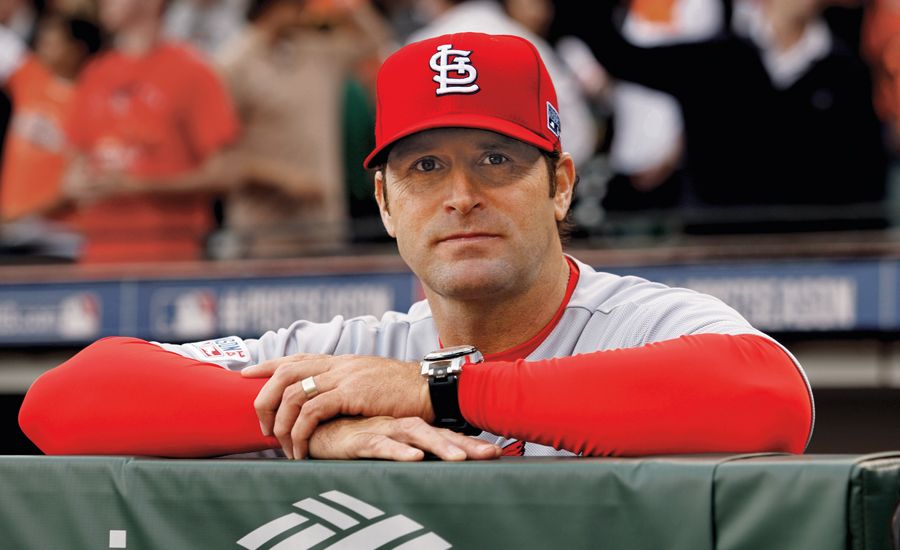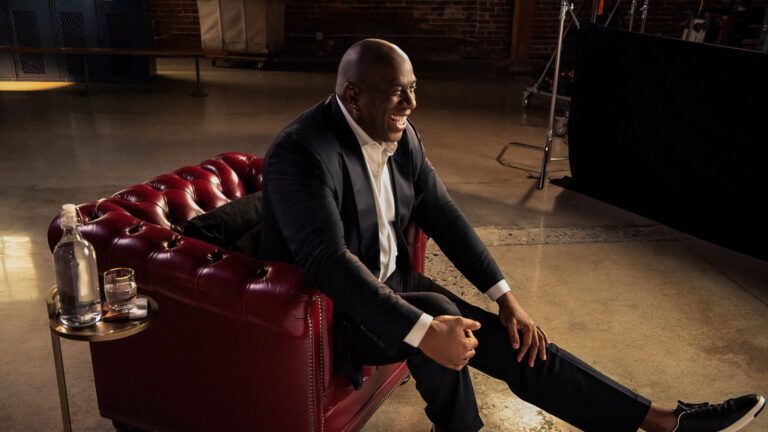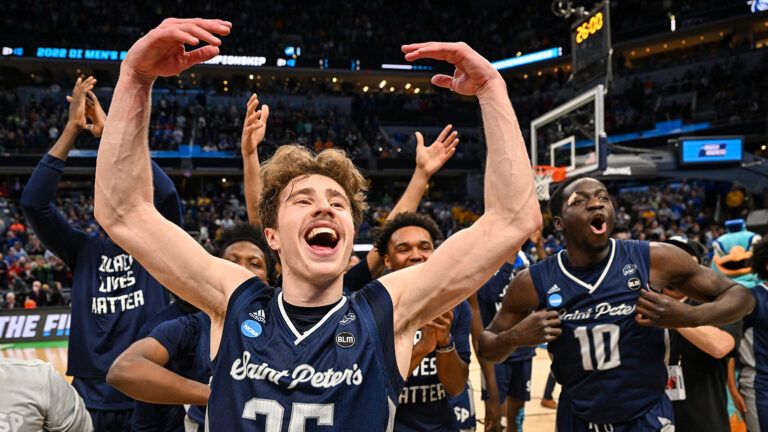If it’s spring it’s baseball. That’s the way it has been my whole life. This season will be my fourth as manager of the St. Louis Cardinals, one of the most storied teams in baseball, a team I proudly played for in my 13-year career as a catcher.
I’ve done all right, leading the team into the postseason all three years, even to the National League pennant in 2013 (we lost to the Red Sox in the Series). But do you want to know what my job was before taking over the Cards? I coached a youth baseball team. That’s right, I was a Little League coach.
I’d been retired for 18 months and I wasn’t exactly happy about it. All I’d ever really cared about was doing my best on the ball field. That part of my life was over, I thought. I wasn’t sure what the future held. I was struggling.
The effects of dozens of concussions suffered behind the plate forced me out of the game I loved. The doctors all agreed: What I needed was rest and recuperation. My brain cells had to sort themselves out.
READ MORE: THE ROOKIE AT AGE 36
Then I got a call from a group of parents asking if I’d coach their kids’ baseball team. “Do these parents know what they’re in for?” I said to my wife, Kristin. “It’s parents who are killing youth sports today. They’re way over-involved. It’s bad for the kids.”
“Maybe you should meet with them and tell them what you think.”
“They’re not going to like what I have to say.” I sat down with my laptop and started writing. I’d seen enough games where parents were yelling from the sidelines, arguing with the umps, telling the coach what position Johnny or Susie should play. Yelling at their kids too.
Maybe they had the kids’ best interest in mind, but it had the opposite effect. Parents should be silently encouraging. They can clap, but that’s it. Even just shouting, “Come on, let’s go, you can do it!” adds too much pressure.
So I laid down the law, filling up five pages, single-spaced, with my goals, my values, my expectations, how to put class and respect back in the game, starting with the kids…and the parents.
It all goes back to my dad. We lived in the suburbs of Columbus, Ohio, in a 1,200-square-foot house. Mom worked for a mission organization and Dad worked with heavy machinery. He would pull “six twelves,” working six 12-hour days a week. Sunday was his only day off, and that was for church.
After work you could tell he just wanted to go inside and relax for a while, but there we’d be—my brothers and I—out in the driveway with our gloves, a bat and a ball. He’d grab a mitt and join us. Dad was my first Little League coach. He didn’t talk a lot, never raised his voice, but he set an example I’d never forget.
We kids learned to play the best ball we could. Never argue with an umpire’s call—that was the coach’s job. Never second-guess what we were asked to do. Respect each other. Respect authority. “Son,” he told me, “the coach is always right, even when he’s wrong.”
After Little League, Dad became my personal coach, playing catch and giving me batting practice. He was patient, consistent, and had a good eye. He turned me into a ballplayer and gave me great advice on how to sharpen my skills.
READ MORE: A PITCHER’S DRIVE TO PLAY
There came a time, though, when he couldn’t give me advice. At 17 I had to choose between going to college or going pro. “You need to be praying about it, son,” Dad told me. “I never went to college, so I can’t really help you. You have to decide for yourself.”
Initially it seemed like a no-brainer. I was such a late-round draft choice that the Toronto Blue Jays didn’t even call me right away. By contrast, the University of Michigan, my top choice for school, had offered me a full scholarship. I’d get a great education and play ball.
Then, on a hot summer day, just before I was headed off to Ann Arbor, the Blue Jays’ general manager and his assistant showed up at our doorstep. They sat in our un-air-conditioned living room and explained exactly how much I would make if I signed with them.
The number took my breath away. I couldn’t help but think how long and hard my father had to work to reach that sum.
I turned to Mom and Dad. They looked right back at me, like tossing a ball. My call. Finally I stood up and said, “Thank you, gentlemen, but I think I need to go get my education first.”
“Very well,” they said. They reminded me that my decision wouldn’t be final until I walked into my first class. I could sign a contract up until that moment. Then they called me a few more times at Michigan, upping the offer.
The first morning of freshman year—my last chance to go pro—I took a shower, got dressed, put on my new denim jacket and headed out the door for class. Walking across campus with a hundred other students I got, well, bombed. By a pigeon, if you know what I mean. A well-fed one.
Stuff splattered all over me. Pigeons are doves and a symbol of the Holy Spirit, but this one had to be the nastiest blessing anybody ever got. By the time I showered and headed out again I was incredibly late. Technically, though, I could still go pro.
I tore through empty corridors, stumbled into my classroom and grabbed the nearest desk, wishing I could just disappear. The professor had already taken roll. Maybe I had made the wrong decision. Maybe this was the wrong place to be.
But then I saw her. A beautiful blonde in the front row. She was all I could see. It was as though the lights in that room only shone on her. Literally, she took away what little breath I had left. I was pretty shy with girls, but I knew she was the real deal. I managed to introduce myself and walk with Kristin to her next class.
I learned a lot over the next four years at Michigan. I had a great baseball coach who trusted me and helped me grow confident in calling pitches. I learned to think and stand up for what I believed. I took Spanish, which turned out to be very useful.
As for that girl on that eventful first day of class? Turns out we had a lot in common, especially our faith. Kristin and I married right after graduation. Baseball was still waiting.
I signed with the Brewers, where I made my major league debut. I played for the Blue Jays, the Cardinals and the San Francisco Giants.
We catchers have a reputation for being tough, and I was, playing a day game after a night game that went to extra innings, taking a beating when runners slid into me at home plate (before they changed the rules) or when a pitch hit me.
Once I was beaned by a 96-mph fastball. I was back behind the dish the next night. A catcher wears a lot of protective equipment, but look at those places where he doesn’t have a face mask or a chest protector and you’ll see bruises up and down his arms, on his neck and collarbone and on his throwing hand.
I had a great career, won four Gold Gloves, was one of only three major league catchers to play at least 100 games in a single season without committing an error. And 13 years is a long time for any catcher to last—most are gone after four or five seasons. But I just wasn’t ready to give up.
Then, in late May 2006, I took a foul tip off my mask. A few pitches later I took another one. Same spot. And another. I had trouble picking up the ball.
I blinked and squinted. The bright lights of the stadium really hurt. I mentioned something to our trainer, but I didn’t want him to think I’d gone soft. No way was I going to let him pull me. Things only got worse as the season went on. After one inning, I could barely keep my eyes open. I wanted to fall asleep on the bench.
No one knows how many concussions a person can endure before the damage is done. I’d probably had 25 to 30 in a life of playing ball. I’d thought that the only answer to “You okay?” was to grab my helmet and mask and head back to the field. You didn’t come out unless you were bleeding or a bone was showing.
Remember what i said about the coach always being right? Same applies to trainers. Something was wrong with my head. Now was not the time to be tough. I had to retire. For my own good and especially for the good of Kristin and our five kids.
Coping with retirement was hard, especially recovering from brain trauma. Three times I drove away from the gas station with the hose still in my gas tank. Kristin would send me on an errand and I’d find myself in the middle of the store, calling her: “Honey, what am I supposed to be buying?”
I’d always been in top physical shape and now I was like an old man, huffing and puffing up a flight of stairs, seeing stars. Words went wrong in my mouth. “Nice to meet you” would come out, “Nice to marry you.” Talk about embarrassing.
The doctors were reassuring. The only way to get better was to rest. I had to take it easy. But I had never taken it easy. I was a ballplayer, a catcher. My whole life was about intensity.
One thing Kristin and I did intensely was pray. Fortunately we had a faith community that supported us and prayed for us too. Prayers and patience. It really did work. My mind and body started functioning again. But what was I going to do with the rest of my life? I was only 35 years old.
Then I got that call from the parents looking for a coach for their kids’ team and I wrote up my rules. It ended up going viral—the Matheny Manifesto, it came to be called. Turned out many others agreed with me. But you could have heard a pin drop when I read those five pages aloud to the parents gathered in my living room.

Being asked to interview for the job as manager of the Cardinals, my old team, was maybe the biggest shock of my life. I didn’t think I had a chance, not with all the veteran managers in contention. I was on a mission trip in the Dominican Republic when I learned I had the job. And being chosen was an incredible blessing.
At first I resented it when reporters suggested I didn’t have enough experience for the job. A Little League coach? You’re kidding me. But I came to embrace that angle. How do we ever know what our future holds?
Even in a ballgame you never know what’s going to happen next. You simply have to be prepared and stick to the fundamentals. Who knows? You might even go to extra innings.
More insights from Mike Matheny.






